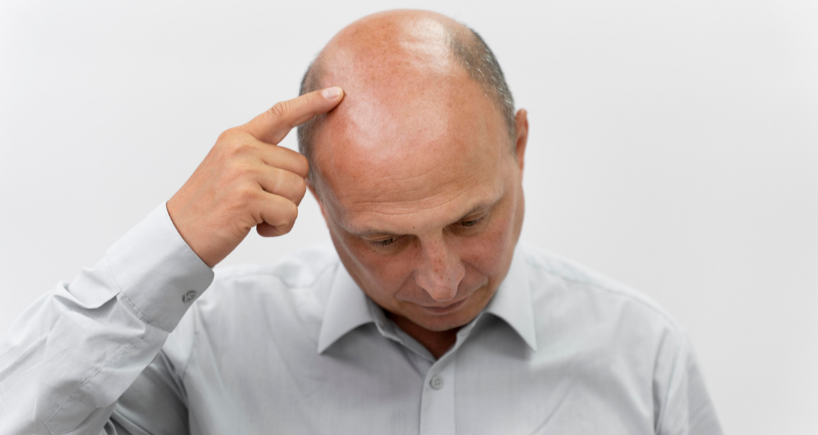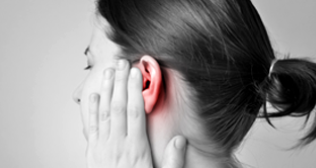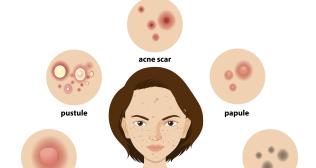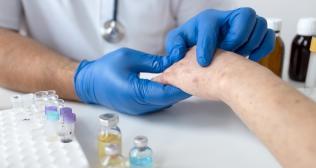
Can Vitamin D Deficiency Lead to Hair Loss? Exploring the Connection
One particular kind of nutrient known as prohormone is vitamin D. It is of two types: Vitamins D2 and D3. When you get exposed to sunlight, your skin synthesis vitamin D3. Additionally, it occurs naturally in foods derived from animals, such as beef liver, egg yolk, fish liver oils, fatty fish and fortified dairy products. Certain plant-based foods, such as mushrooms, contain vitamin D2. For healthy bones, this activated form is essential for controlling calcium. In addition, it promotes hormone balance, cell division, immunological response and more. Weak bones, heart disease, cognitive problems, excess hair loss and even cancer can result from a lack of vitamin D deficiency. Hence, vitamin D is an essential nutrient that plays a role in many of the body’s functions.
Continue reading to find out more about the potential connections between hair loss and vitamin D deficiency. Along with other signs and symptoms of vitamin D deficiency, this blog examines the effects of vitamin D on your hair.
How does vitamin D impact hair growth?
Vitamin D plays a vital role in healthy hair growth. Vitamin D influences the hair follicle cycle. It directly interacts with the hair follicle. When there is enough vitamin D, it helps hair follicles grow and function properly. It indicates the anagen phase, a growth phase during which thick hair is produced.
A hair follicle undergoes a growth cycle with three phases: Anagen, catagen and telogen. The anagen phase determines thickness and is responsible for active hair growth. During this phase, vitamin D is essential. When there is a deficiency in vitamin D, the anagen phase shortens and pushes premature hair follicles into the telogen phase. As a result, excessive shedding occurs, leading to a thinner hair.
Vitamin D deficiency leads to hair loss as it is involved in hair follicle growth. When there is no sufficient vitamin D, it affects the growth phase of the follicle and results in two conditions called androgenetic alopecia, which is a common type of hair loss that causes male pattern baldness and female pattern hair loss, and alopecia areata, which is an autoimmune condition that develops when the immune system attacks its own hair follicles.
Symptoms of vitamin D deficiency
The symptoms of vitamin D deficiency involve:
- Severe hair loss
- Muscle and joint pain
- Increased sensitivity to pain
- Weekend muscles
- Bowed legs
- Fatigue and low energy level
- Thinning of hair
- Slow wound healing
- Impaired memory
Treatments for hair loss due to deficiency of Vitamin D
It is crucial to seek medical counsel prior to using any supplements. Medications such as minoxidil and topical corticosteroids are prescribed to increase vitamin D levels in the body. In addition, an increase in the vitamin D dietary supplements will be helpful to maintain the vitamin D levels in the body.
Preventive methods for hair loss caused by vitamin D deficiency
- Spending more time in the sunlight
- Eating vitamin D-rich foods, like fish liver oil, salmon, trout, meat, oranges, fortified milk, cereals and egg yolk
- Not pulling hair while brushing
- Avoiding tight hairstyles
- Using gentle shampoo and conditioner
- Avoiding using styling products that use electricity
- Letting hair dry naturally than using a blow dryer
- Stimulating blood flow by massaging hair occasionally
Risk factors of vitamin D deficiency
- Limited sun exposure
- Having a darker skin tone
- Obesity
- Having gastrointestinal conditions
- Autoimmune disorders
Conclusion
In conclusion, it is very upsetting to have hair loss, and you may wonder if vitamin D insufficiency is a possible cause. Your hair growth and development are among the many facts that depend on vitamin D. Your hair may suffer when your body isn’t getting enough vitamin D. Therefore, it’s crucial to be aware of such symptoms and make an effort to incorporate vitamin D into your daily lifestyle.


















